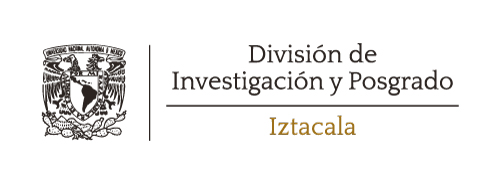
| Location within campus: | Academic Tutoring Tower, second floor, cubicle 34. Building located within the facilities of the Faculta de Estudios Superiores Iztacala. |
| Phone: | 56231333, ext. 39855 |
| Head of Laboratory: | Dr. David Javier Enríquez Negrete Full-time Professor “A” tenured david.enriquez@iztacala.unam.mx |
| Researchers affiliated to the laboratory: | B.S. Blanca Delia Arias García blanca.arias@iztacala.unam.mx B.S. María Aranxta Elizarrás Rios arantxa.elizarraras@iztacala.unam.mx B.S. Leticia Báez Pérez letzz.bp@gmail.com Dr. Ricardo Sánchez Medina ricardo.sanchez@iztacala.unam.mx |
| Research lines per researcher: | Dr. David Javier Enríquez Negrete: Positive Psychology, Sexual Health, and Online Education. B.S. Blanca Delia Arias García: Education Mediated by Technologies. B.S. María Aranxta Elizarrás Rios: Stress and Illness, Sexual Health, and Socialization Processes. B.S. Leticia Báez Pérez: Pedagogical Well-being; Outreach and Technology-Mediated Education. Dr. Ricardo Sánchez Medina: Sexual Health in At-Risk Groups and Development of Self-paced Online Courses. |

LaCiTICSS is comprised by a group of professors, researchers, graduates, and students interested in cooperating, participating, and generating high-quality scientific knowledge and social technology. This collaborative workspace is oriented towards the development of research, experiments, practices, and scientific, technological, or technical work with the purpose of generating factual knowledge, explaining and understanding phenomena of cultural, social, and psychological nature. The aim is to guide these results towards the creation of evidence-based social technology to address issues related to health, education, and the psychological states of groups and individuals. In this collaborative process, we seek to: a) train undergraduate and graduate students through active participation in different research and technological development projects; b) train professors so that they can generate new lines of research with social impact; c) establish cooperation links with other professionals inside and outside the country; and d) generate methodologically sound research to create educational and academic development spaces for all group collaborators. In this way, we aim to consolidate a research team capable of conducting social research and technological innovation to contribute to the resolution of relevant problems.

a) Enríquez, D., Sánchez, R., Arias, B. D. y Robles, S. (2019). Diferencias entre hombres y mujeres en el significado psicológico de las prácticas de socialización sexual fraternas. Revista Actualidades en Psicología, 33(126), 51-68. doi: 10.15517/ap.v33i126.31841
b) Enríquez, D., Arias, B. D., Sánchez, R. y Oseguera, A. O. (2018). Análisis longitudinal del desempeño académico en un curso autogestivo en línea: la presencial social mínima en entornos autónomos de aprendizaje. Revista Latinoamericana de Tecnología Educativa, 17(2), 101-115. Doi: 10.17398/1695-288X.17.2.101
c) Enríquez, D. y Sánchez, R. (2016). Comportamiento sexual en universitarios con historia de embarazo papel de la intención de usar y negociar el condón con la pareja. Revista Eureka, 13(2), 186-201.
d) Enríquez, D. y Sánchez, R. (2016). Retraso del debut sexual en universitarios: el papel de los padres, la pareja y los conocimientos sobre VIH/ITS/condón. Psicología Iberoamericana, 24(2), 34- 43.
e) Enríquez, D. y Sánchez, R. (2015). Influencia de los hermanos en el comportamiento sexual de riesgo y preventivo: una revisión. Revista Digital Internacional de Psicología y Ciencia Social, 2(1), 113-132. Doi: 10.22402/j.rdipycs.unam.2.1.2016.59.113-125.

| Entry profile of potential thesis students: | Habit of reading, Spanish and preferably English reading comprehension skills. Basic writing skills, basic knowledge of the current APA style manual. Ability to work in a team and under pressure, as well as critical thinking and an interest in manifestations of human activity, such as science and research. General knowledge of theories and systems in psychology, research methodology, and basic statistics. Willingness to work and learn. |
| Service Social Data: | No data. |
